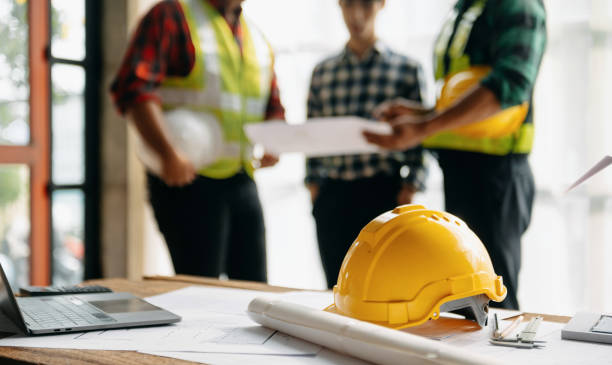In the realm of construction and renovation, general contractors play a pivotal role in overseeing projects from inception to completion. Their expertise encompasses a wide range of tasks, including office remodeling and commercial plumbing. Let’s delve into the significance of general contractors in these specific domains and understand their crucial functions.
Understanding General Contractors
General contractors serve as the primary orchestrators of construction projects. They are responsible for coordinating various aspects of the project, such as planning, scheduling, budgeting, and managing subcontractors. Their overarching goal is to ensure that the project is completed efficiently, on time, and within budget, while meeting quality standards and client expectations.
Office Remodeling: Transforming Workspaces
Office remodeling is a process of revitalizing and enhancing existing office spaces to meet the evolving needs of businesses. Whether it involves expanding office areas, updating interior design, or integrating modern amenities, general contractors are at the forefront of executing these transformations.
Key Responsibilities of General Contractors in Office Remodeling:
- Project Planning and Design: General contractors work closely with clients and architects to conceptualize the remodel, translating ideas into actionable plans. They consider factors such as space utilization, aesthetics, functionality, and compliance with building codes.
- Budgeting and Cost Management: Managing costs is crucial in office remodeling projects. General contractors meticulously estimate expenses, procure materials and labor at competitive rates, and maintain financial transparency throughout the project.
- Coordination of Trades: From carpentry to electrical work, office remodeling projects involve multiple trades. General contractors coordinate these activities, ensuring seamless collaboration among subcontractors to achieve project milestones.
- Quality Assurance: General contractors uphold quality standards by overseeing construction activities, conducting inspections, and addressing any issues promptly. They strive to deliver results that not only meet but exceed client expectations.
- Timely Completion: Time is of the essence in office remodeling projects, especially when businesses need to resume operations swiftly. General contractors employ efficient scheduling techniques to minimize downtime and deliver projects on schedule.
Commercial Plumbing: Ensuring Infrastructure Integrity
Commercial plumbing is a critical aspect of building infrastructure, encompassing the installation, maintenance, and repair of plumbing systems in commercial properties. General contractors specializing in commercial plumbing play a vital role in ensuring the functionality and safety of these systems.
Key Responsibilities of General Contractors in Commercial Plumbing:
- System Design and Installation: General contractors collaborate with engineers to design plumbing systems tailored to the specific requirements of commercial buildings. They oversee the installation process, ensuring compliance with regulatory standards and building codes.
- Fixture Selection and Procurement: From sinks to water heaters, selecting the right fixtures is essential for optimal functionality and durability. General contractors assist clients in choosing suitable fixtures, procuring them from reliable suppliers, and coordinating their installation.
- Maintenance and Repairs: To prevent disruptions and costly damages, regular maintenance of plumbing systems is imperative. General contractors offer maintenance services such as inspections, cleaning, and repairs to address issues promptly and prolong the lifespan of plumbing infrastructure.
- Emergency Response: Plumbing emergencies can occur unexpectedly, posing risks to property and occupants. General contractors provide round-the-clock emergency response services, promptly addressing leaks, clogs, and other plumbing emergencies to minimize downtime and mitigate damages.
- Sustainability and Efficiency: With a growing emphasis on sustainability, general contractors incorporate eco-friendly practices and technologies into commercial plumbing projects. This includes the installation of water-efficient fixtures, greywater recycling systems, and energy-saving solutions to reduce environmental impact and operating costs.
In conclusion, general contractors play a multifaceted role in office remodeling and commercial plumbing projects, serving as the backbone of construction endeavors. Their expertise, attention to detail, and commitment to excellence ensure the successful execution of projects, ultimately contributing to the functionality, aesthetics, and longevity of commercial spaces. As businesses continue to evolve, the role of general contractors remains indispensable in shaping the built environment for the future.














